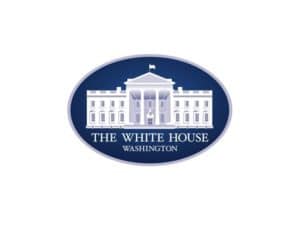New Report Outlines Biden-Harris Administration’s Progress on Addressing Environmental Justice
 On May 23, the White House Council on Environmental Quality (CEQ) released a report outlining the steps the Biden-Harris Administration has taken to implement recommendations from the White House Environmental Justice Advisory Council (WHEJAC). The WHEJAC had provided over 200 recommendations for the Administration’s Justice40 initiative in May of 2021. A White House press release laid out key excerpts from the report including three related to drinking water:
On May 23, the White House Council on Environmental Quality (CEQ) released a report outlining the steps the Biden-Harris Administration has taken to implement recommendations from the White House Environmental Justice Advisory Council (WHEJAC). The WHEJAC had provided over 200 recommendations for the Administration’s Justice40 initiative in May of 2021. A White House press release laid out key excerpts from the report including three related to drinking water:
- WHEJAC Recommendation: Support the retrofit of lead water pipe infrastructure.
- Council response: EPA is committed to using every tool available—statutory authority under the Safe Drinking Water Act, technical assistance, funding for lead service line removal, and more—to protect all Americans from lead in drinking water. EPA will work collaboratively with local, state, and Federal partners to make rapid progress on President Biden’s vision to remove 100% of lead service lines, with a focus on prioritizing communities that are disproportionately impacted by lead contamination. Additionally, EPA announced next steps to strengthen the regulatory framework on lead in drinking water. Following the agency’s review of the Lead and Copper Rule Revisions under Executive Order 13990, EPA will pursue significant opportunities to improve the rule to support the overarching goal of proactively removing lead service lines and more equitably protecting public health.
- WHEJAC Recommendation: “Expand project eligibility criteria of the Clean Water State Revolving Fund (CWSRF) to include homes, residences, schools, and childcare facilities. Eligibility criteria should include prioritizing highly impacted communities with a legacy of drinking water contamination in homes & apartment buildings. Eligibility requirements should allow access to families and renters.”
- Council response: EPA is working to ensure that the Clean Water State Revolving Fund (CWSRF) and the Drinking Water State Revolving Fund (DWSRF), both Justice40 Pilot Programs, are delivering much-needed resources and benefits to communities identified by the WHEJAC in their report. For example, each state implements its CWSRF program, adhering to Federal requirements, and selects projects using a priority setting system. Many states establish affordability criteria to provide priority to communities and projects that may have historically been underserved due to their socioeconomic situation. Administrator Regan has also provided clear guidance to state, local, and Tribal partners on how to implement the CWSRF and DWSRF in a manner that delivers clean and safe water and replaces lead pipes for all Americans, especially in disadvantaged communities.
- WHEJAC Recommendation: “Create a federal low-income water and sewer bill assistance program. This program will assist low-income customers with paying their water and sewer bills. This will be structured as grants to state and Tribal entities to provide direct assistance to low-income water and sewer customers, similar in concept to the established Low-Income Home Energy Assistance Program (LIHEAP). This would bring parity to water, as the federal government already recognizes heat and home energy as essential to well-being.”
- Council response: HHS launched the new Low Income Household Water Assistance Program (LIHWAP) that provides funds to assist low-income households with water and wastewater bills. LIHWAP grants are available to States, the District of Columbia, the Commonwealth of Puerto Rico, U.S. Territories, and Federally and state-recognized Indian Tribes and tribal organizations that received Fiscal Year 2021 LIHEAP grants.

